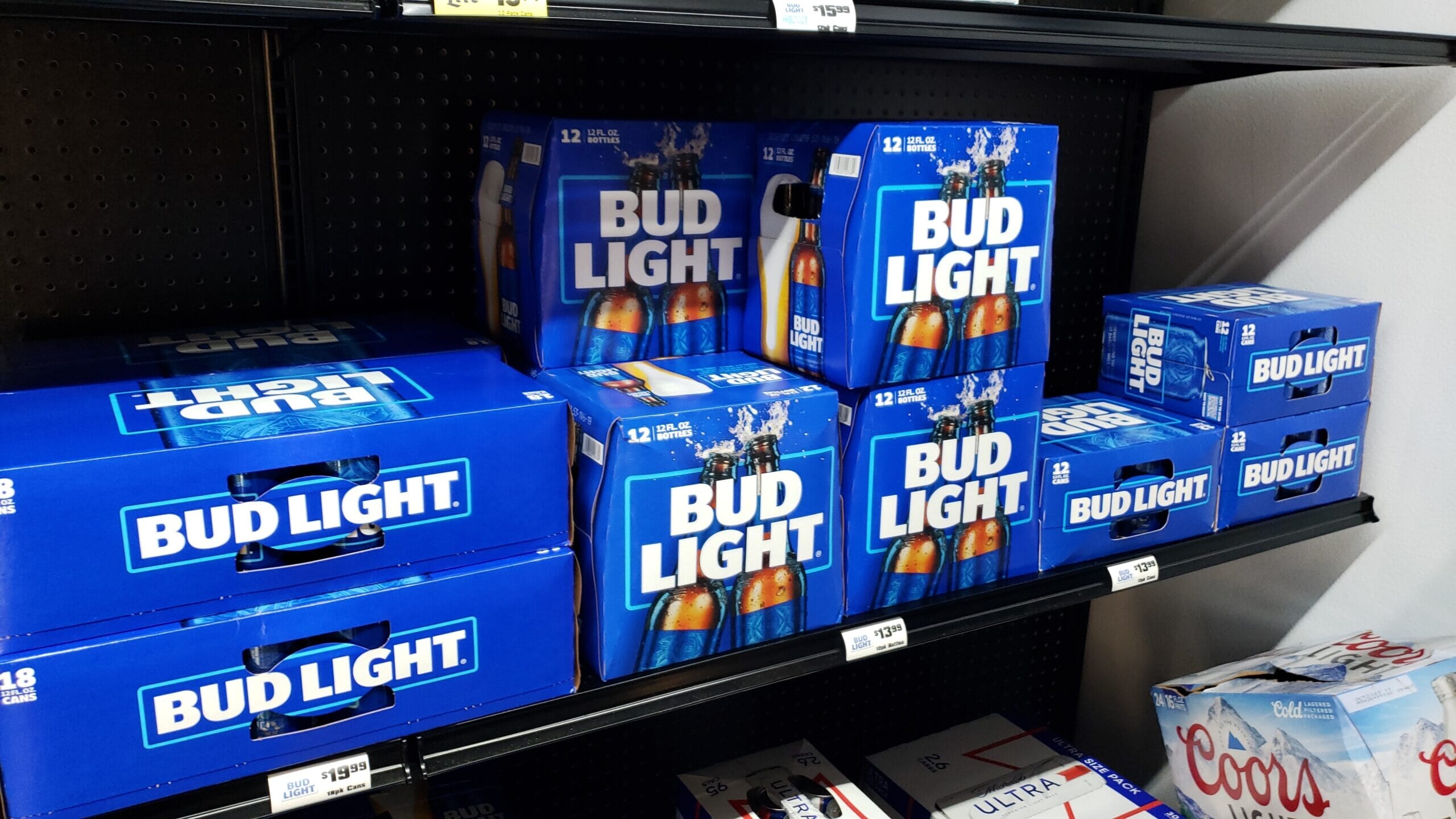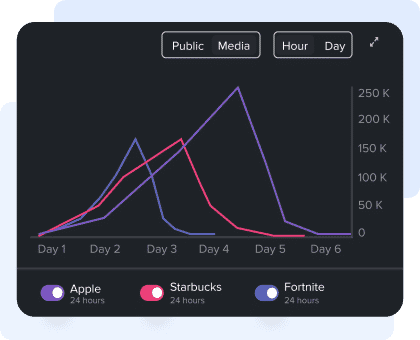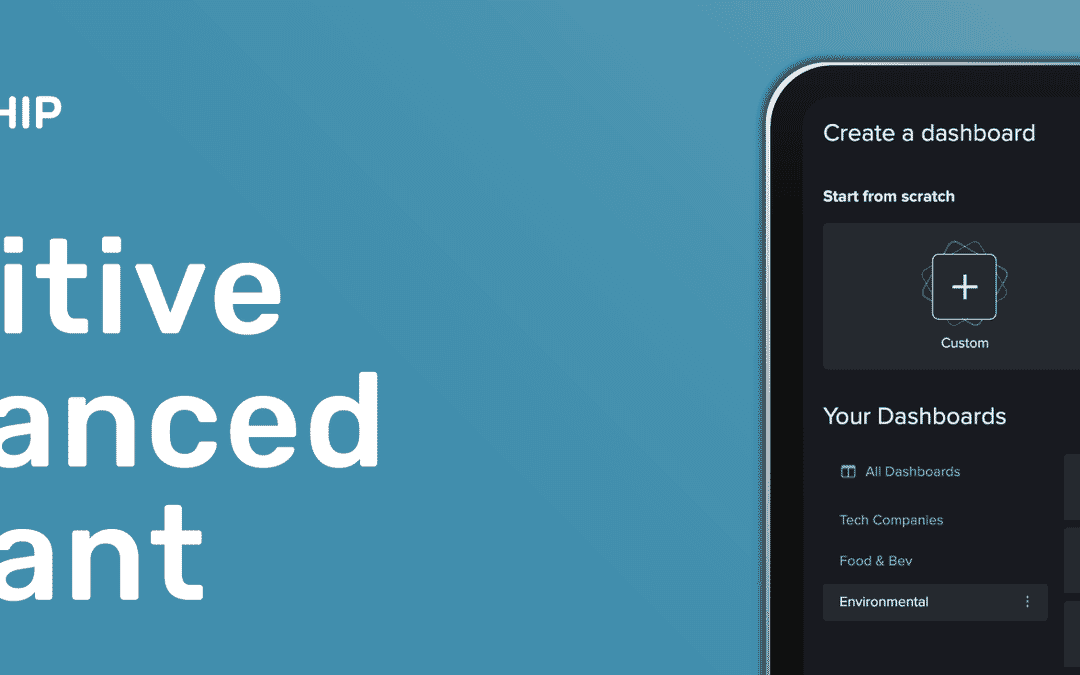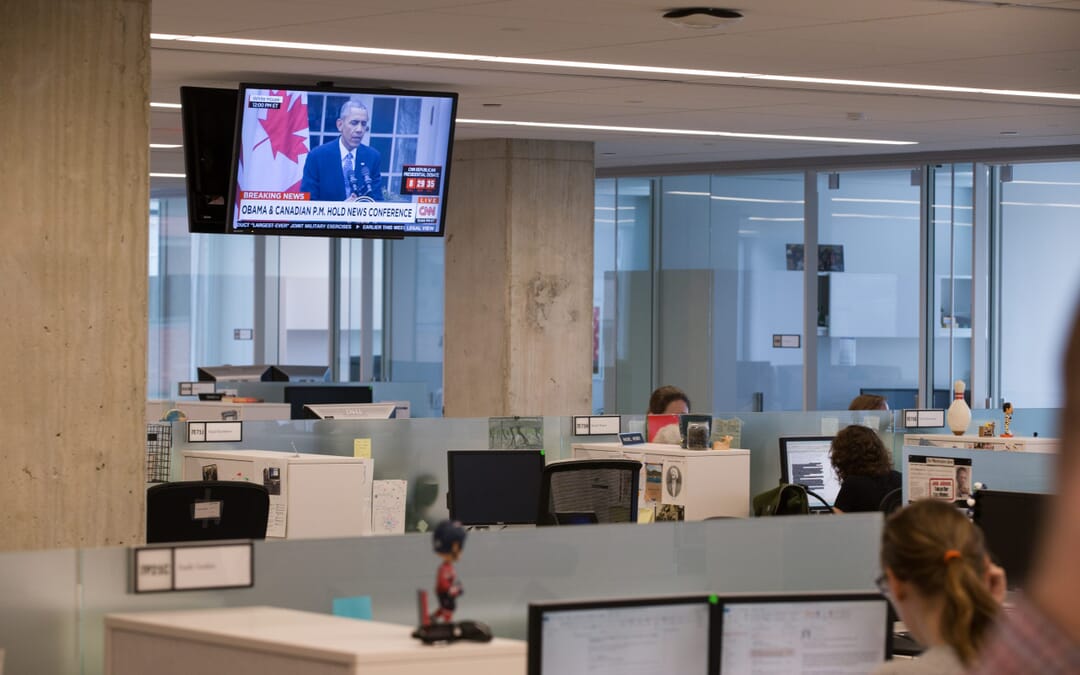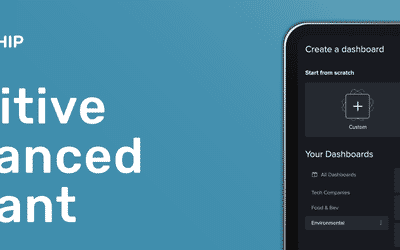Last week 181 CEOs from the Business Roundtable, a 47 year old association focused on advocating policies to strengthen the economic interests of US corporations, signed a historic pledge that could change the relationship between business and the environment.
Signed by the likes of Apple’s Tim Cook, JP Morgan Chase’s Jamie Dimon, and Amazon’s Jeff Bezos, this new pact elevates community development and embracing sustainable business practices to the same level as the quest to maximize profits on the CEO’s list of responsibilities.
But do these leaders suddenly believe that it’s good business to do good? Is this genuine CEO activism? Or is it simply a coerced acknowledgement on the social and political issues we face today?
In a world where brands of all magnitudes can be pulled into non-business conversations — from a political tweet challenging their companies’ sourcing practices to a holiday party video brimming with styrofoam cups — the debate has changed and corporate America is waking up. The activists and influencers of today are the consumers demanding change through their voice and the almighty dollar.
According to a study by Cone Communications, 86% of consumers expect brands to act on environmental and social issues, and 50% of these consumers would boycott a brand for their stance on a social issue. Consumers use the power of their wallets to pressure companies to take stands on social, political, and environmental controversies that are important to them.
Sustainability, above almost any other issue, is becoming a watchword for companies across the business spectrum, crossing into the mainstream from early pioneers like REI, Patagonia – companies whose culture and identity are predicated on sustainability. Now the idea of sustainability flows through every fiber of the products and services we consume.
Given the Business Roundtable’s symbolic, but potentially transformational announcement, we wanted to understand the companies who are leading this movement with genuine authority and action.
Methodology
Through the use of NewsWhip Analytics, we identified the top 10 brands and associated stories capturing the largest number of social interactions around environmental topics and sustainability in 2019 (shares, likes, tweets, pins…). We did this by determining keywords associated with the environment and sustainability, and then pulling the brands that feature in the top stories about those topics.
The top brands that were featured in environmental/sustainability stories were Igloo, Tesla, and Loop.
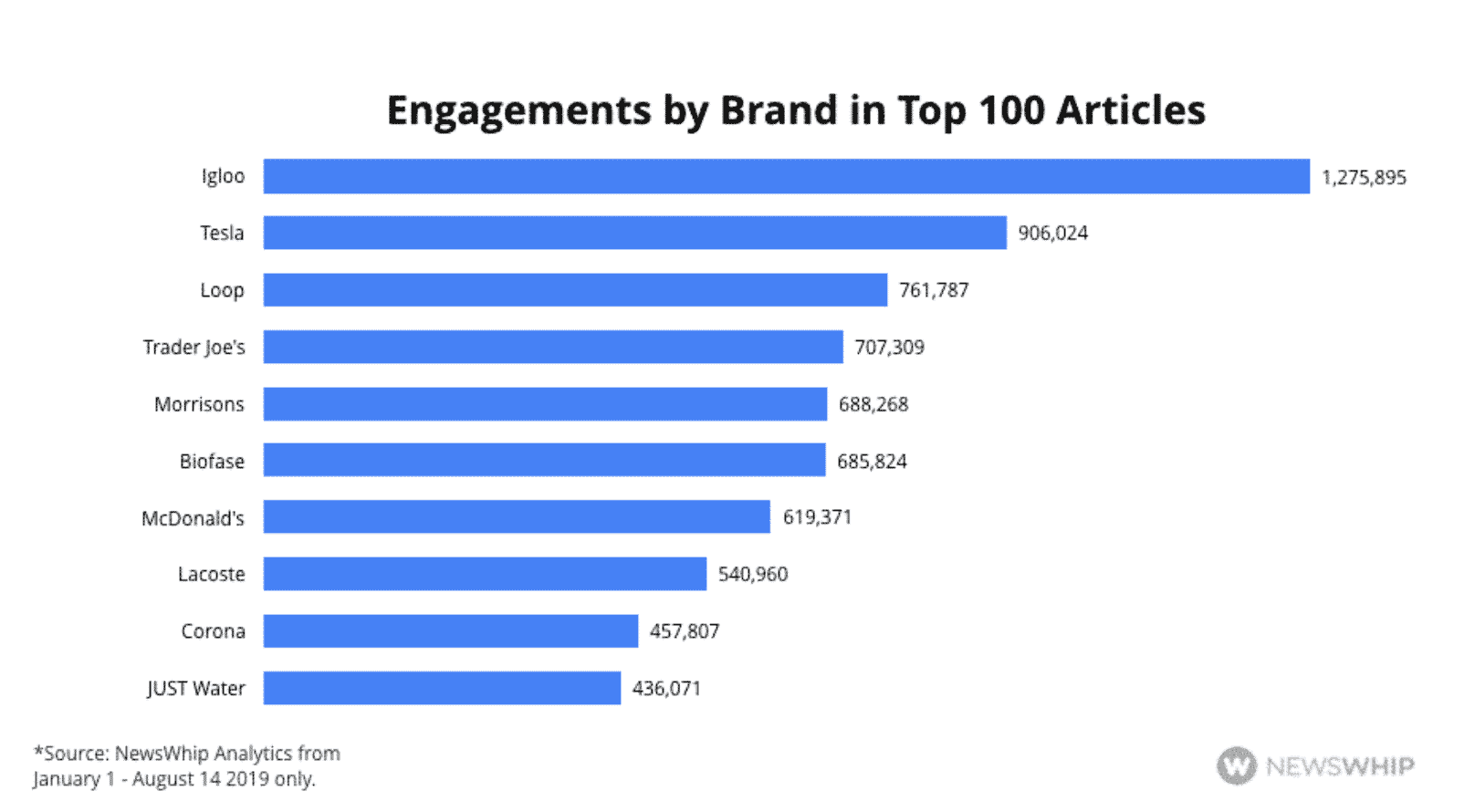
Many of the top stories are about brands dropping single-use plastics, or upgrading to biodegradable alternatives, and many of those stories come from publications outside of the mainstream.
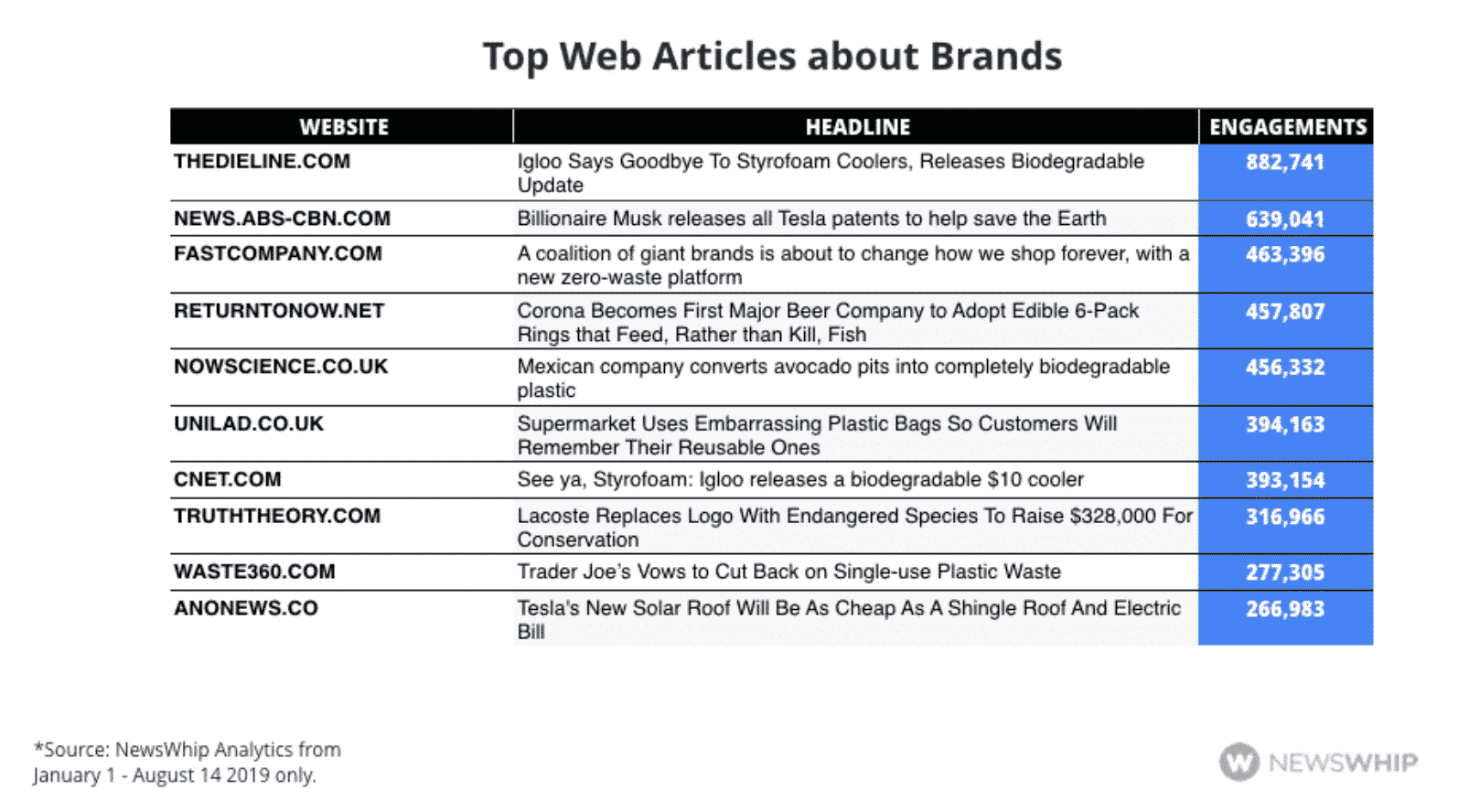
While it’s smart for Igloo to say goodbye to styrofoam coolers, one might think our analysis would be riddled with stories of sustainable prowess from the likes of REI & Patagonia, but that wasn’t the case as seen in the stories aboveYes, Tesla’s Elon Musk is ever present, but what we found most compelling is the demand from audiences for sustainable innovations within the food and grocery delivery sector. In fact, the “green grocery” conversation is dominating the discussion.
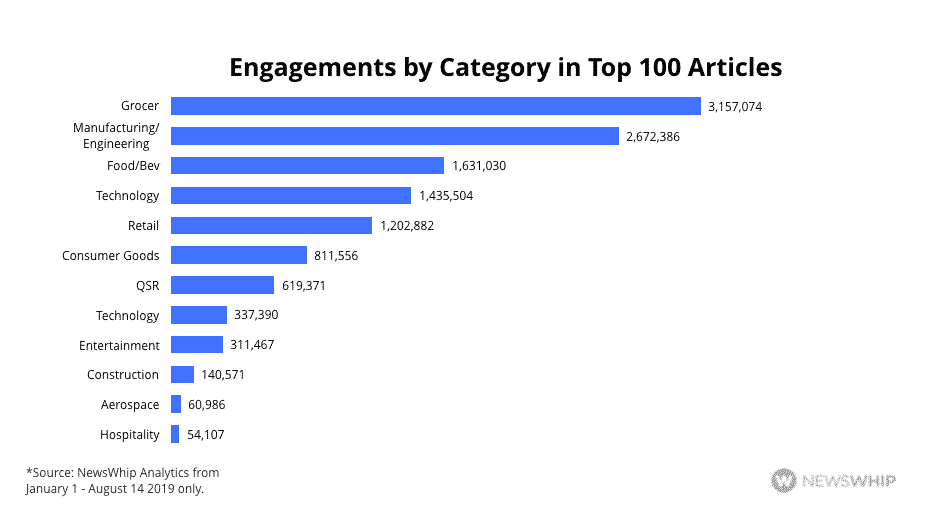
The general theme from these stories here is centered on the reduction of plastic, but East West Market, Morrisons, Trader Joe’s & ALDI have distinguished themselves through firm commitments in their messaging. Below are four of the top stories from this period:
- Supermarket Uses Embarrassing Plastic Bags So Customers Will Remember Their Reusable Ones (394,163 interactions)
- Morrisons becomes first British supermarket to ban plastic packaging from fruit and veg (261,017 interactions)
- Trader Joe’s Is Eliminating a Million Pounds of Plastic From Its Stores (98,493 interactions)
- ALDI says all packaging will be reusable, recyclable, or compostable by 2025 (170,949 interactions)
Some activists might push back and say it’s long overdue. And they’d be right, but from our analysis, the ripple effect is widening with renewed velocity.
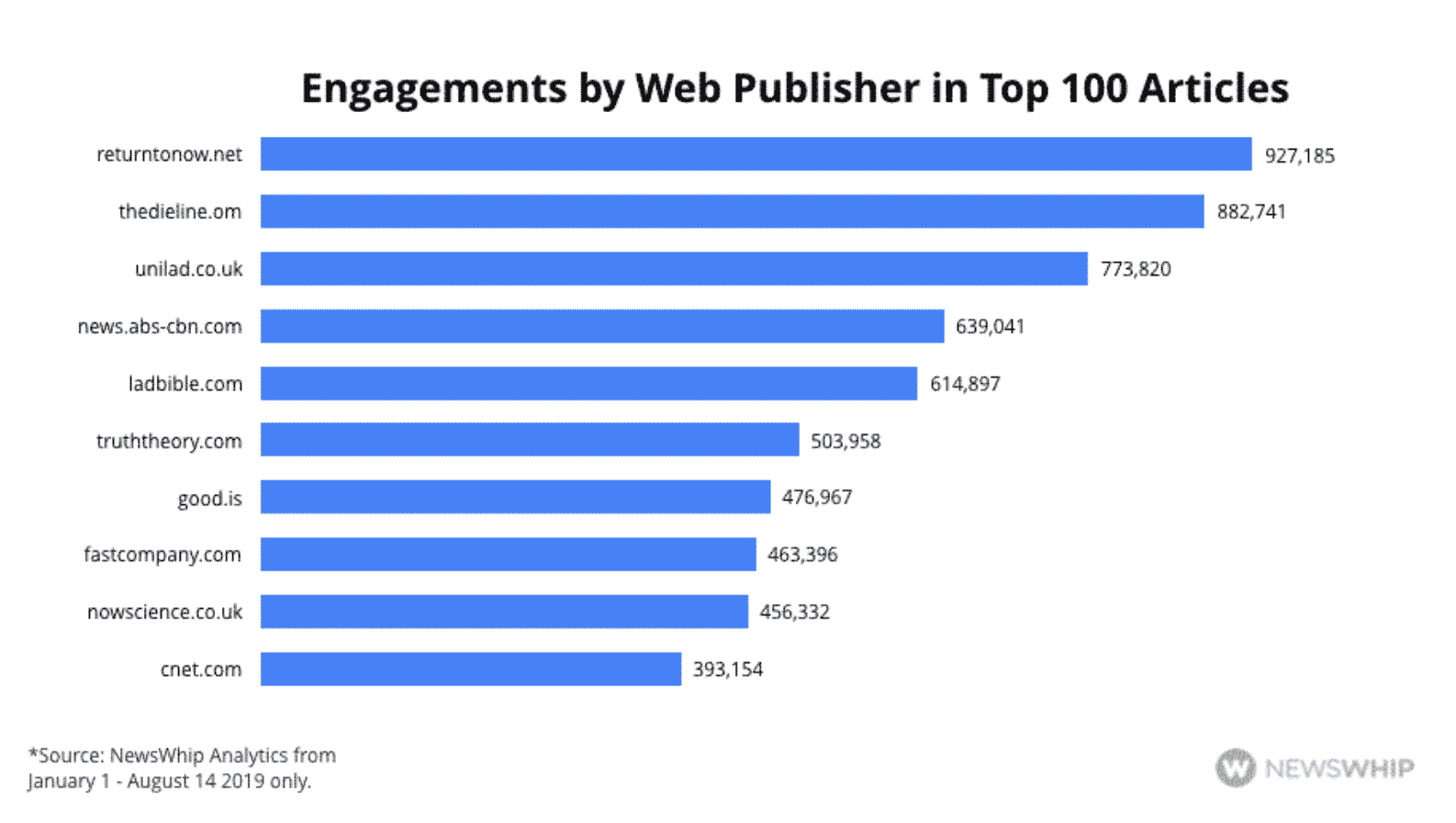
Avocado knives, edible beer rings, and seed shooting drones
While researching the brand impact, there were three companies leading the intersection of sustainability & innovation:
- Corona Becomes First Major Beer Company to Adopt Edible 6-Pack Rings that Feed, Rather than Kill, Fish (457,807 interactions)
- Company Turns Avocado Pit Waste Into Biodegradable Straws and Cutlery (95,522 interactions)
- These tree-planting drones are firing ‘seed missiles’ into the ground. Less than a year later, they’re already 20 inches tall. (95,087 interactions)
Corona: The infamous 6-pack rings have been responsible for killing millions of seabirds and marine life every year. Although Corona was not the first to develop these edible rings, their brand could influence the other major players to follow suit.
Biofase: According to Reader’s Digest, roughly 1.9 billion avocados are being consumed by Americans each year and Biofase, the company responsible for converting avocado pits into cutlery is cashing in. They utilize roughly 15 tons of these seeds daily, selling the finished products to restaurants chains like Chili’s Bar & Grill.
BioCarbon: Last, but not least are seed firing drones. In 2018, drones were utilized by BioCarbon Engineering on a restoration project in Myanmar. BioCarbon is an engineering company that focuses on eco-automation, and was able to convert drones into seed firing delivery systems. Now they have the capacity to deliver seeds into remote areas which were once impervious to development. With just two operators, they were planting upwards of 400,000 trees per day. Sustainability is good business!
What’s next for sustainability and businesses?
Corporations have always influenced the design of public policy, but the role of the CEO and the companies they lead has changed. Long gone are the days of lone-wolf CEOs taking public stands on sustainability. It turns out that sustainable policy and product development can actually drive business innovation, as the edible 6-pack ring, avocado knife and seed firing drone show.
This month’s “statement of purpose” from the Business Roundtable codifies something the social stats have already proved: consumers care about more than how much a business earns — they care what it stands for. And brands who’ve shown a commitment to sustainability, both in their marketing and their business practices, are well-placed to reap the rewards.


